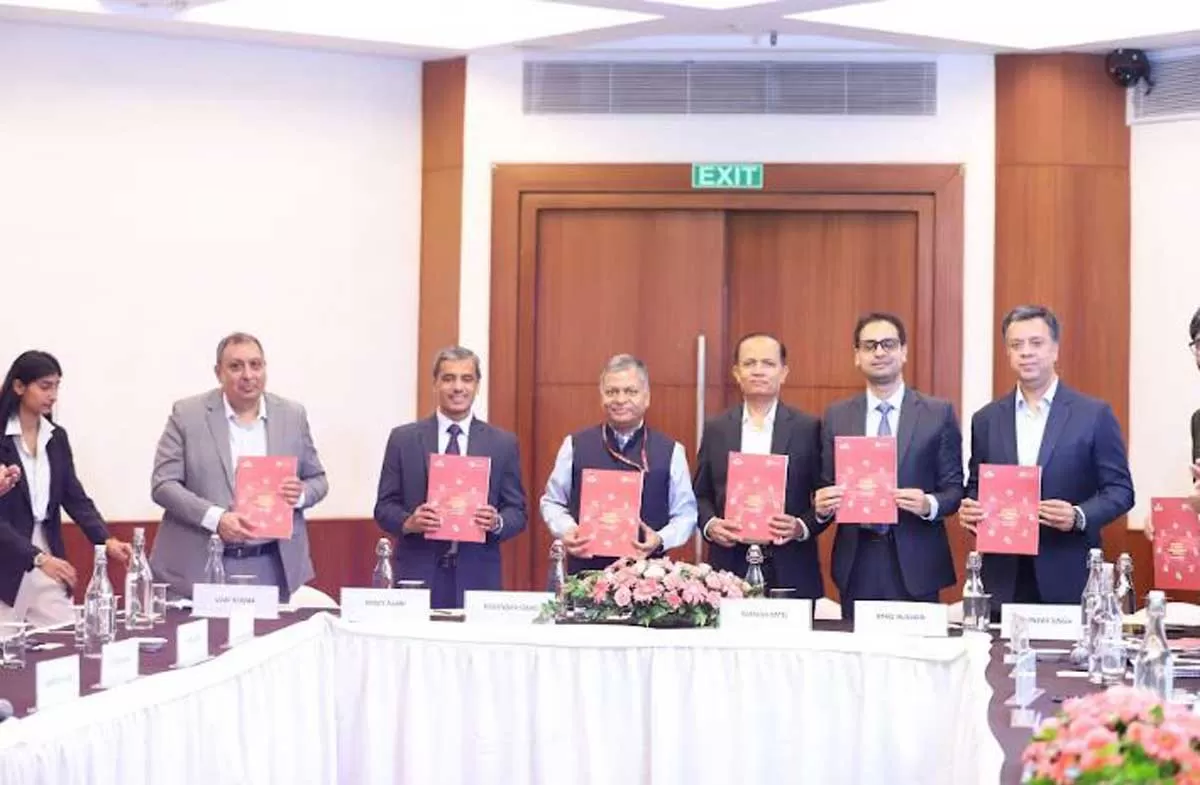The Express Industry Council of India (EICI), the apex industry association representing leading international and domestic express companies in India, has released an insightful White Paper in association with the Bureau of Research on Industry and Economic Fundamentals (BRIEF), a research-based policy think tank. The White Paper, titled 'The Future of Express Cargo Clearance in India - ECCS in the New Customs Integrated System', underscores the need to ensure the smooth integration of processes and preserve the strengths of the existing Express Cargo Clearance System (ECCS) as it is proposed to be integrated into the forthcoming Customs Integrated System (CIS).
The White Paper aims to apprise the regulatory authorities, especially the Central Board of Indirect Taxes and Customs (CBIC), about the critical features of the currently operational ECCS and the express industry’s expectations from the new CIS. It was formally submitted to the CBIC at a consultation held in New Delhi, which was also attended by Shri Yogendra Garg, Member (IT & Taxpayer Services), CBIC, officials from DG Systems, and senior representatives from the express and logistics industry.
Based on the on-ground realities of the express industry, the paper recommends measures to streamline operations, reduce redundancies, and strengthen India’s trade facilitation architecture. The express cargo industry is recognised as a vital part of the logistics ecosystem, powering e-commerce and supporting India’s ease-of-doing-business and global trade integration goals. It is critical to MSMEs, providing solutions for their integration into global value chains. The Express Delivery Services (EDS) industry is estimated to be over INR 700 billion in 2024 and has witnessed a 15%-18% CAGR growth over the past 7 years, employing over 30 lakh people. India’s Courier, Express, and Parcel (CEP) market is projected to grow from $8.62 billion in 2025 to approximately $15 billion by 2030, highlighting the urgent need for efficient logistics systems.
The White Paper outlines key recommendations for system-related reforms necessary to enhance ECCS as part of its integration into CIS. Given the time-sensitive nature of express shipments, it is critical that the new system retains the distinctive features and operational agility of ECCS.
Vijay Kumar, Chief Executive Officer, EICI said, “Express cargo industry is a vital part to the logistics ecosystem, powering e-commerce and supporting India’s ease-of-doing-business and global trade integration goals. With the upcoming CIS poised to elevate India’s standing in global logistics and trade facilitation, this White Paper marks an important step in our continued engagement with policymakers. It outlines the express industry’s unique clearance requirements and calls for a seamless integration of ECCS into the CIS. We had a successful collaboration with CBIC in developing the ECCS, and this White Paper sets the course for the next vital phase of partnership—aligned with the government’s forward-looking approach to policy-making involving stakeholders. As India charts its course toward becoming a $30 trillion economy by 2047 under the Viksit Bharat mission, the express cargo industry will play a pivotal role in driving trade and fuelling MSME growth.”
Key recommendations include:
- The express clearance module should be a separate, independently designed module within the CIS, following the Immediate Release Guidelines of the World Customs Organization (WCO).
- CIS should adopt a modular architecture to separate express from other cargo modes (maritime, air, land, postal) to ensure that system failures in one domain do not disrupt others.
- Continuous engagement with the express industry is essential across all stages of CIS development and implementation.
- Core ECCS functionalities such as real-time status updates, bulk filing, and bulk and auto Out of Charge (OOC)/Let Export Order (LEO) must be preserved and incorporated into CIS.
- All functionalities currently offered through ICEGATE should be integrated into the express module to eliminate operational inefficiencies and reduce dwell times.
- The express module must be API-enabled to allow seamless interconnectivity, scalability, and adaptability.
- A refined risk management system should be embedded, balancing stringent controls with facilitative measures tailored for express cargo.
- Examination processes must be system-driven to minimise manual interventions which cause delays for time-sensitive shipments.
- A dedicated help desk should be established exclusively for express industry users to ensure swift resolution of system issues.
- Scheduled system downtimes must be limited and occur at times that minimise disruption.
- Information already available across government platforms (like GST and banking systems) should be auto-linked to the CIS to avoid redundant data entry.
These recommendations are described as foundational requirements to ensure the continued agility, scalability, and global competitiveness of India’s express cargo operations.
The successful development and implementation of the ECCS in India in 2017 was a joint effort between the EICI and the CBIC, standing as a strong testament to the power of consultative governance and stakeholder-driven reform. As India advances towards the CIS, the success of ECCS reinforces the need for continued dialogue, cooperation, and co-creation, embedding the voice of industry into the policy process. Preserving the distinct features of express cargo clearance—particularly its rapid processing capabilities—must remain a top priority.
Afaq Hussain, Director BRIEF added, "The White Paper demonstrates a shared vision between the express cargo industry and regulatory authorities to align operational priorities with the government’s vision of promoting economic growth and streamlining trade. We appreciate and acknowledge the government's commitment to stakeholder consultations and upholding the spirit of collaboration. With the recommendations of this paper, we are hopeful that Customs develops a system that not only meets the specific needs of the express logistics industry but also contributes to the broader development of India’s logistics ecosystem.”
As India is poised to become a $30 trillion economy under the Viksit Bharat vision, strengthening both traditional and express cargo systems in tandem is crucial. The proposed enhancements safeguard the efficiency of the express sector while reinforcing the overall resilience and scalability of the cargo ecosystem. In doing so, India will not only ensure uninterrupted trade flows but also cement its leadership in global logistics, e-commerce, and cross-border trade.





















